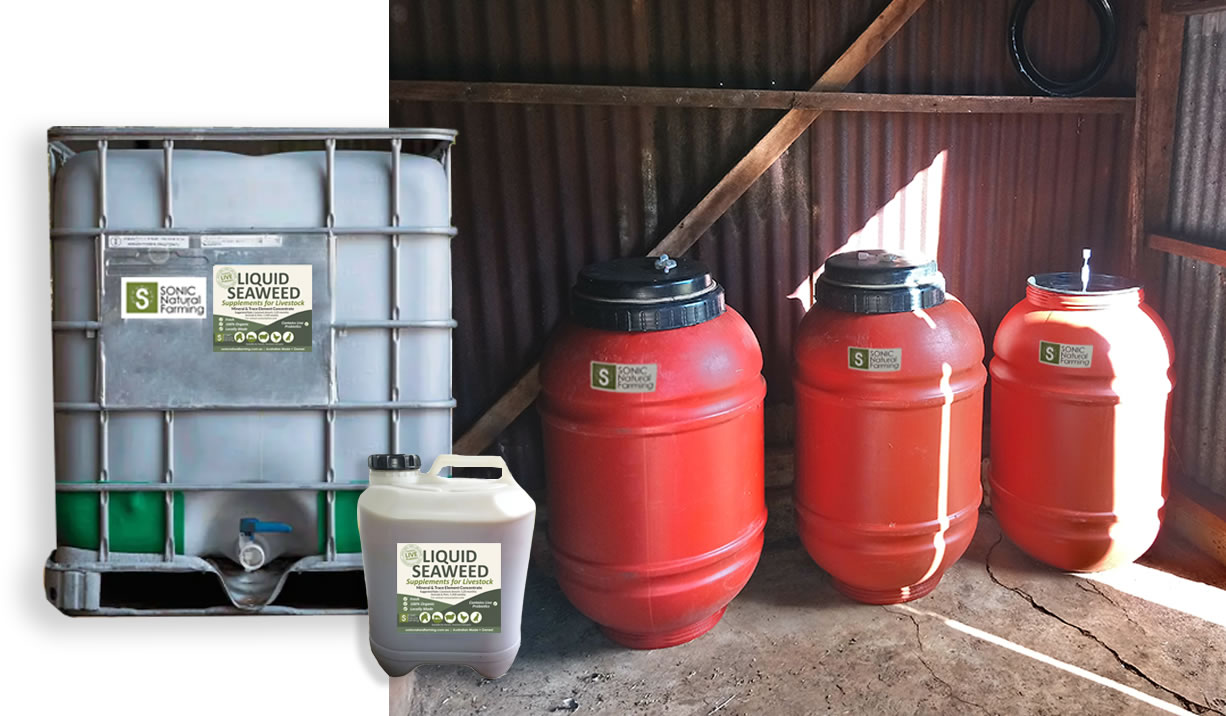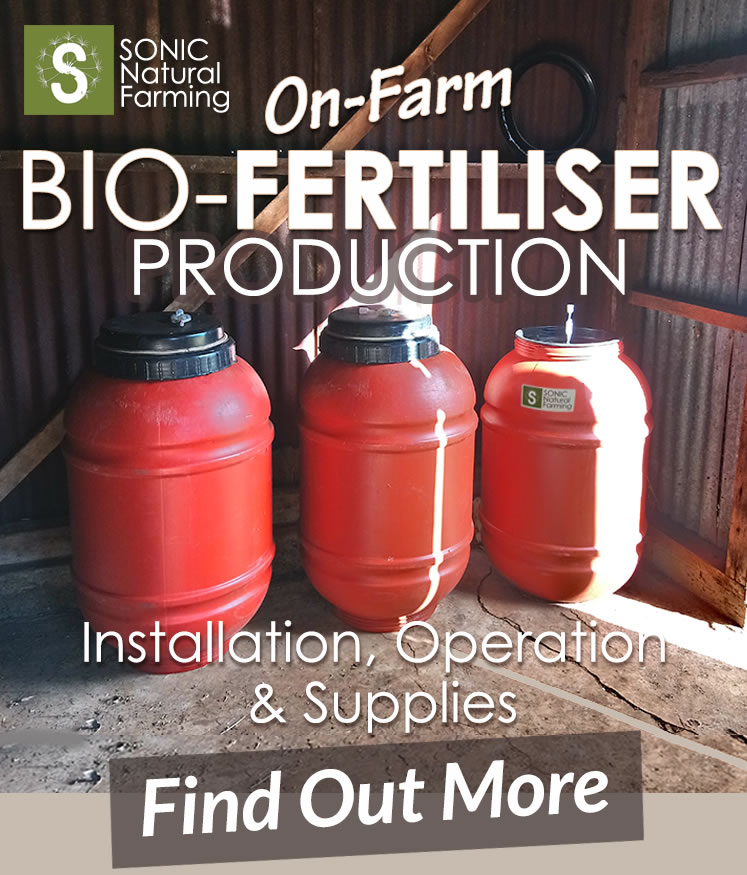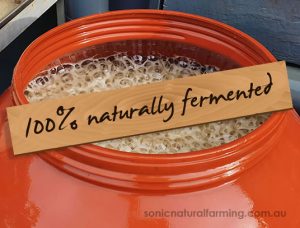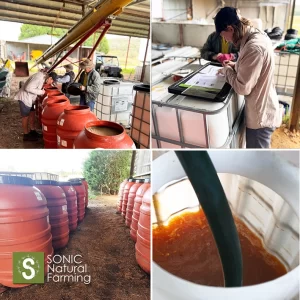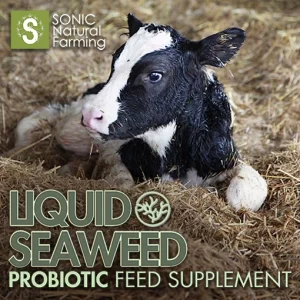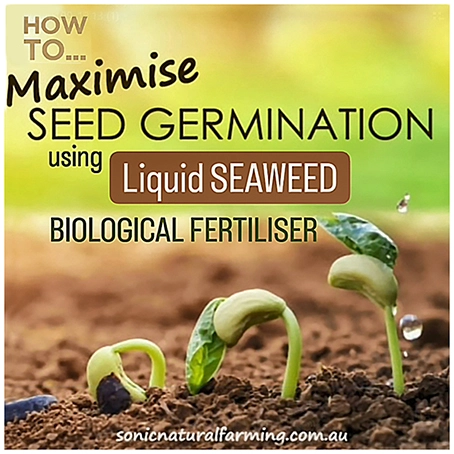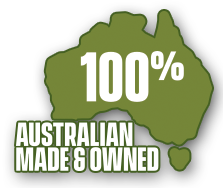Maintaining optimal gut health is crucial for the overall wellbeing of cattle and calves. One effective way to support digestive function and immunity is through the use of probiotic supplements. In this article we explore the significant effects probiotics can have on cattle and calves.
Probiotics for Stress Reduction
Weaning is a critical time for livestock, as it can induce significant stress and impact the overall health and productivity of the animals. By minimising stress levels around the time of weaning, producers can improve the health of their livestock after weaning and reduce production losses and the potential for injury.
Weaning calves, for example, is a major transition that requires careful management. Sudden separation from the mother cow can lead to increased vocalisation, reduced feed and water intake, and elevated cortisol levels – all of which are indicators of stress. This stress response can compromise the animal’s immune system and make them more susceptible to illness.
To mitigate these issues, producers can implement weaning strategies that gradually accustom the calves to separation and supplement their diet with a wholesome nutrition feed supplement.
Probiotic Support for Calmer Calves
As these young animals transition from milk to solid feed during the weaning process, their delicate digestive systems can be susceptible to stress and imbalances.
Ensuring that the weaned animals have access to high-quality feed and water, as well as a comfortable, low-stress environment, can support their recovery and reduce the potential for production losses.
The use of natural probiotics in weaning calves has been associated with improved weight gain, reduced incidence of gastrointestinal disorders, enhanced immune response, calmer animals, and even increased feed efficiency.
By incorporating probiotics into the calves’ diet during this critical stage, farmers can provide them with beneficial bacteria that aid in digestion, immunity, and nutrient absorption.
How Do Probiotics Work?
Probiotics work by populating the gut with “good” bacteria, helping to maintain a healthy microbial balance.
Probiotic Seaweed Mineral Supplements for calves have gained significant attention in the livestock industry. One particular type of supplement, a natural liquid probiotic made with seaweed (kelp), has shown excellent results in promoting the optimal maturation of the rumen microbiota in calves.
Probiotic liquid seaweed contains a rich array of beneficial bacteria and microorganisms that can help establish a healthy gut microbiome. These probiotics work to improve nutrient absorption, reduce the risk of digestive issues, and bolster the animal’s natural defenses against pathogens.
Incorporating probiotic liquid seaweed into cattle and calf feed can provide a range of benefits, including:
– Enhanced feed efficiency and weight gain
– Reduced incidence of diarrhea and other gastrointestinal problems
– Improved immune function and disease resistance
– Promotion of a balanced gut flora for overall animal health
By supplementing cattle and calf diets with probiotic liquid seaweed, producers can take a proactive approach to supporting the long-term health and productivity of their herd.
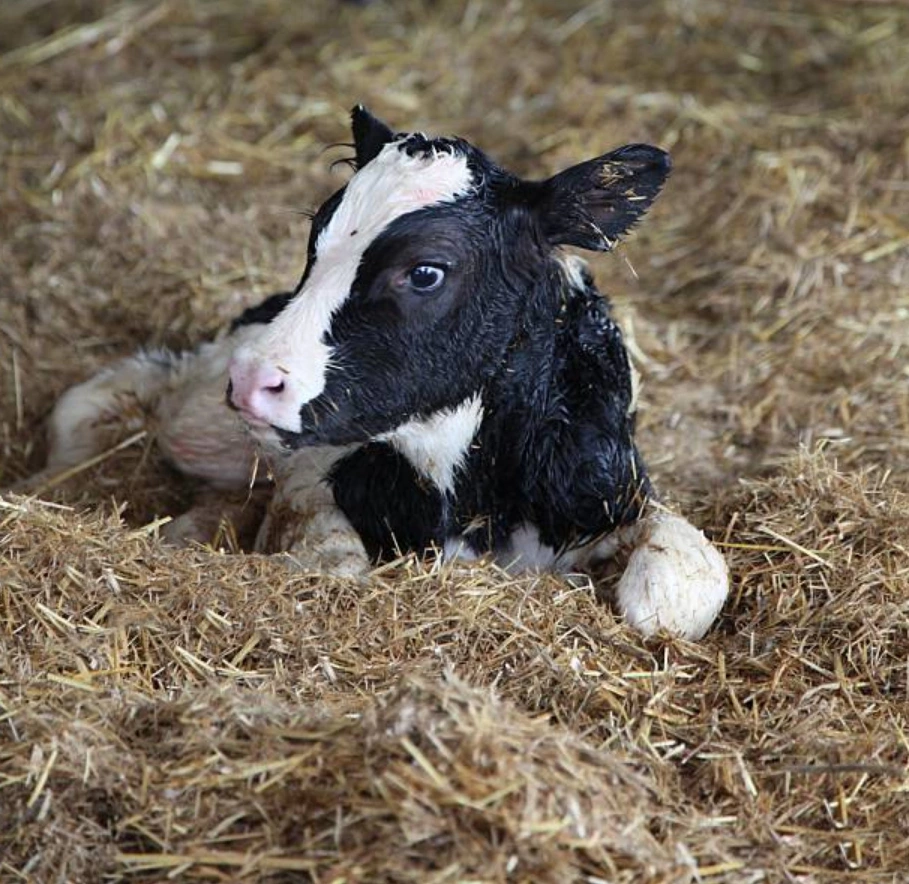
Day 1 Supplementation
It is noteworthy that these probiotics can be administered to calves as early as day one, indicating their potential benefits, right from the start of a calf’s life. By introducing probiotics, at such an early stage, it is believed that the development and diversity of beneficial bacteria in the rumen can be enhanced. Thus, leading to improved digestion and overall health.
Weaning with Probiotics: Benefits
Furthermore, research has indicated that the use of natural liquid probiotics can increase digestion safety during weaning, as the introduction of probiotics during this period has been shown to support smoother transitions.
Alongside this, studies have indicated reduced digestive disturbances, commonly associated with weaning stress. These beneficial bacteria play a crucial role in balancing the microbiota in calves, leading to reduced stress, illness, and mortality rates.
Balanced Gut Microbiota
During the weaning process, calves undergo significant changes in their diet and environment, which can disrupt their delicate gut microbiota.
By incorporating probiotics into the calves’ diet, farmers can help restore and maintain a healthy balance of bacteria in their digestive systems. Probiotics work by introducing beneficial microorganisms that support proper digestion and nutrient absorption.
Studies have shown that probiotics can enhance immune function, improve gut health, and reduce the incidence of calf scour. These benefits contribute to lower mortality rates among calves during the critical weaning period.
Reduced Chemical Treatments
In addition to enhancing rumen health, and digestion safety, natural liquid probiotics have also demonstrated their ability to reduce the risk of pathogen colonisation in calves. By promoting a balanced microbiota within the rumen, these supplements create an environment less favorable for harmful pathogens to establish themselves.
Furthermore, probiotics offer a natural alternative to antibiotics commonly used to combat calf scour. With growing concerns about antibiotic resistance and consumer demand for sustainable farming practices, probiotics provide a viable solution for promoting calf health, without relying solely on antibiotics.

Beneficial Microbes by Chaucheyras-Durand and Fonty, 2002
In young pre-ruminants, bacterial probiotics such as lactic acid bacteria (Lactobacillus spp., Bifidobacterium spp., Enterococcus spp., Propionibacterium spp.) or Bacillusspores generally target the small intestine, as the rumen is not yet developed, and they represent an interesting means to stabilise the gut microbiota and limit the risk of pathogen colonisation.
However, live yeast distributed from the first days after birth have been reported to favour microbial colonisation and the set-up of fermentative capacities in the rumen.
In vitro studies have reported that live yeasts could influence the balance of lactate-metabolising bacteria, by limiting lactate production by Streptococcus bovis and favouring lactate uptake by Megasphaera elsdenii or Selenomonas ruminantium (Chaucheyras et al., 1996; Nisbet and Martin, 1991; Rossi et al., 2004).
– Beneficial Microbes by Chaucheyras-Durand and Fonty, 2002.
Download Article
Calf Scour Preventative
Calf scour is the single most common cause of calf mortality under 2 months of age. According to experts, one of the primary causes of calf scour is inadequate nutrition to the pregnant cow at the later stage of pregnancy. Vet treatments generally include oral saline, electrolytes and antibiotics.
South Australian cattle farmer, Brad, has been using SONIC Probiotic Liquid Seaweed Livestock Feed Supplement for his cattle as a preventative treatment for calf scour, adding the liquid Minerals to water troughs. After a short time of use, since February this year (2023), Brad says “I’m still seeing scour in the calves, but I haven’t lost any”.
Seaweed delivers a multi mineral supplement like no other. Offering it to cattle, in a pre-digested form (cold fermented), enables the animal to easily uptake the nutrients, along with the natural probiotics to optimise digestion.

Colonies of Lactic Acid Bacteria found in SONIC Natural Farming Probiotic Liquid Seaweed for Livestock. (Above Image).
Probiotics and Seaweed: Mineral Supplement Powerhouse
SONIC Probiotic Liquid Seaweed provides a natural source of lactobacillus bacteria and healthy yeasts. These compounds support gut health by enhancing beneficial bacteria growth while inhibiting the growth of harmful pathogens.
Furthermore, the bio-available Liquid Seaweed contributes to overall calf growth and development by providing essential nutrients and trace elements that may be lacking in the animals diet during the weaning phase.
Optimised Digestibility
Overall, incorporating natural liquid probiotic minerals, into calf nutrition programs, offers many benefits for optimising rumen development. It also improves digestion safety during weaning, and reduces pathogen colonisation risks.
In conclusion, incorporating probiotics into the diets of young calves during weaning can help balance their microbiota, reduce mortality rates, and mitigate the occurrence of calf scour.
The use of 100% natural products not only benefits farms, farmers and the food chain, but contributes to sustainable solutions in animal agricultural practices, by utilising renewable and natural resources that are safe for the environment.
RELATED EXTERNAL LINKS
Regenerative Farming Educational Videos



